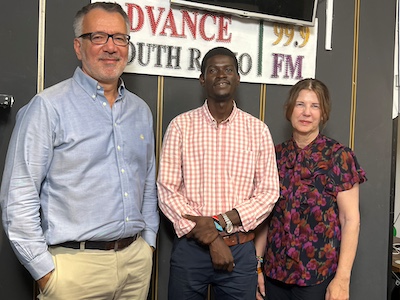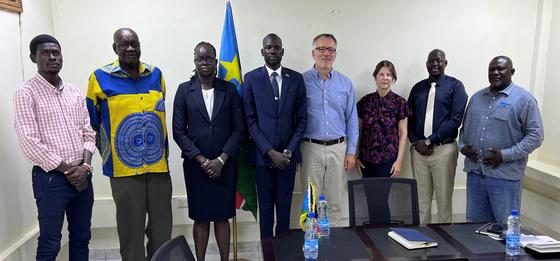Alpaslan Özerdem, dean of George Mason University’s Jimmy and Rosalynn Carter School for Peace and Conflict Resolution, recently returned from a peacebuilding initiative in South Sudan, where he was a guest of the Minister of Peacebuilding Stephen Par Kuol and NewGen Peacebuilders’ Executive Director Patricia Shafer.

South Sudan gained its independence in 2011, though it was engaged in a civil war from 2013 to 2020. Despite its oil and mineral resources, it’s also one of the poorest countries.
The international community, including the United States, United Kingdom, and Norway (The Troika), has provided funding for nation-state building and peacebuilding efforts. However, Sudan’s state structures are weak, with access generally limited to the capital city of Juba and other urban areas. The country is supposed to hold its first national elections at the end of the year to move from its current transitional government structures after so many years, but it is yet to be delivered.
Özerdem assisted the Ministry of Peacebuilding in its policy and programmatic efforts. After a meeting including representatives of the Ministry of Youth and Sports, Ministry of Education, several international donors and NGOs, U.S. and several other ambassadors, a wide range of national authorities including the National Disarmament, Demobilization and Reintegration Commission (NDDRC), and the Carter Center, Özerdem provided the ministry with a plan of action, which focused on the capacity development at several levels.

“In a country where millions of civilians are armed to the teeth, where there has never been a comprehensive [Disarmament, Demobilization and Reintegration] DDR of its ex-combatants and child soldiers, what the executive secretary of the NDDRC said quietly was deafening: The DDR is dead!” Özerdem said.
The Carter School’s graduate programs in conflict and dispute resolution, and the delivery of in-country training tailored for the mid-level ministerial management of the country, were identified as short-term priorities to ensure the local peacebuilding programming capacities can be sustained in the mid-to-long term.
Özerdem and Shafer tested some of their initial ideas with several international agencies, including the Carter Center, which has been running a successful Guinea Worm Eradication Program in South Sudan since 2005.
“It was a short but hugely productive visit, Özerdem said. “South Sudan needs academic actors like the Carter School to bridge the knowledge and practice and help national and local actors develop their capacity.”
Related News
- April 11, 2024
- April 4, 2024
- March 5, 2024
- February 12, 2024
- November 21, 2023
